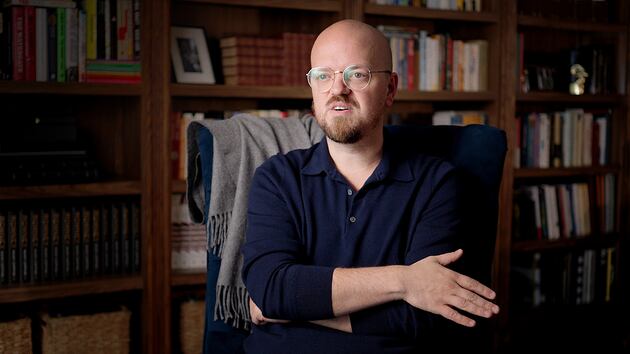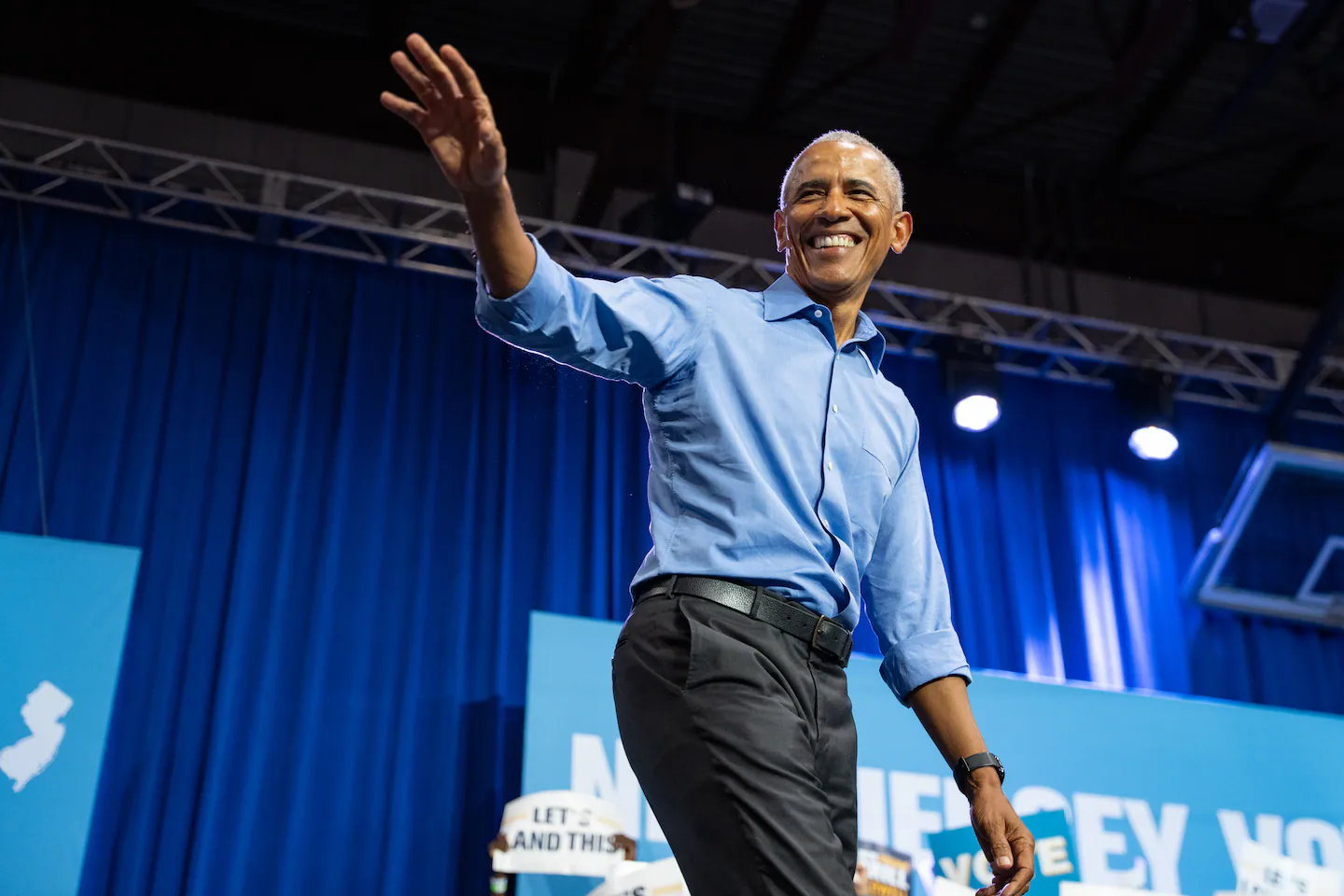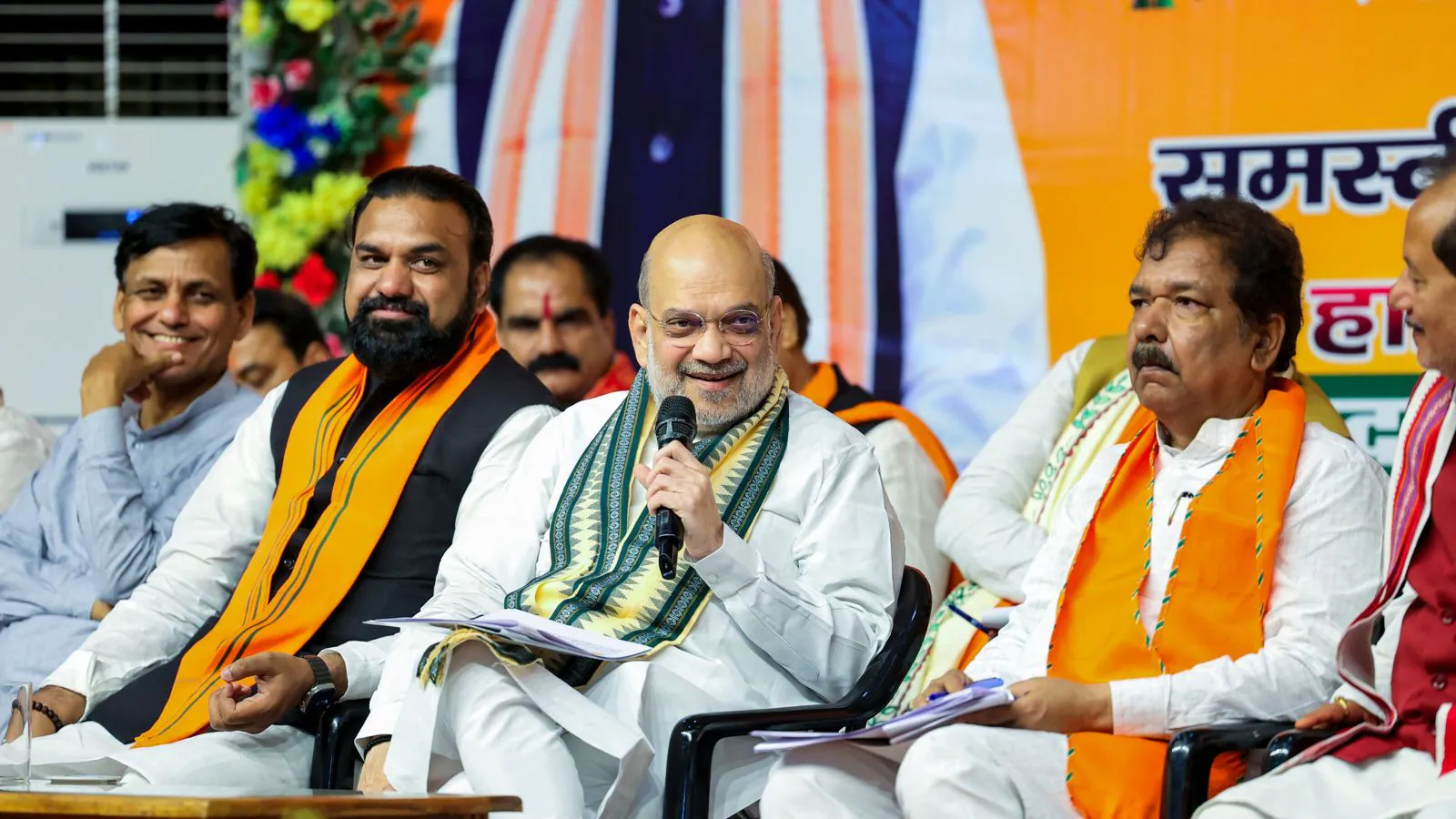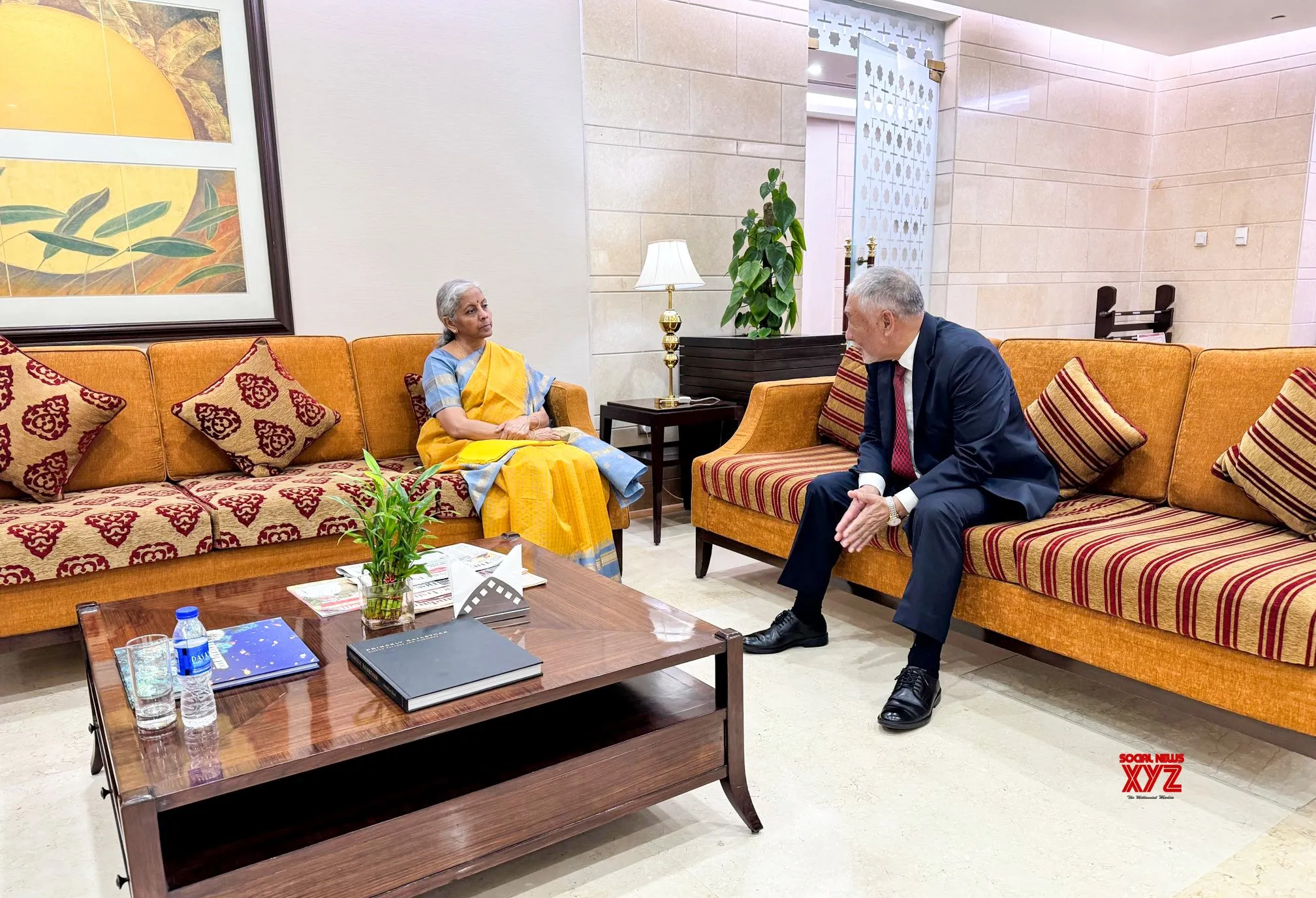Copyright Salt Lake City Deseret News

VIENNA, Va. — In 2007, the city of Farmers Branch, Texas, passed a series of laws aimed at clamping down on immigration, including one that made it illegal for landlords to rent to people without documentation. It was a national story at the time, but McKay Coppins, who was then 19 years old and serving a mission for The Church of Jesus Christ of Latter-day Saints in Texas, didn’t see it that way. The young missionary was dealing with plenty of challenges of his own — learning how to communicate the Gospel to people who weren’t always receptive, and acclimating to the hot, sticky climate of north central Texas, conditions that weren’t especially conducive for a Massachusetts native pedaling a bike while wearing a suit. But Coppins gained a new perspective the Sunday after the new laws were passed. Sitting in a Latter-day Saint meetinghouse, located between Dallas and Farmers Branch, he watched the branch president, a young father from Guatemala, minister to a gathering of scared and tearful people. Normally soft-spoken, the man gave what Coppins describes as a “thundering talk.” “You are all children of God,” he told them emphatically. “Never, never let them make you feel like less.” The moment stayed with Coppins, as did the years he spent sharing his faith in Spanish to immigrants in Texas. The experience would inform his development as a journalist and his reporting at The Atlantic and other news organizations as issues surrounding immigration grew more prominent in the national conversation. Sitting in the living rooms and kitchens of people whose experience was vastly different from his own made Coppins realize “how lucky people who are born in America are,” he told me. “I remember when I was at the Missionary Training Center, someone gave a talk and said something like ‘Treat everyone you meet as if they’re secretly going through the worst crisis of their lives, and half the time you’ll be right,’” he said. “As a 19-, 20-year-old kid, you don’t have a lot of opportunity to learn the intimate details of people’s lives and what they’re going through. So it was a crash course in how brutal life can be, how brutal the world can be.” On this day, we are far from the more brutal aspects of the world; we are, in fact, in some of the most pleasant, as we sit in Coppins’ home office, in a suburb of Washington, D.C. It is here where the journalist thinks, reads and writes, and starting this week, records a new podcast called “Deseret Voices.” It is an elegant space, but not soundproof, and there is a non-zero chance that a 2-year-old will pound on the French doors at any given moment. “He’s a daddy’s boy,” Coppins says of his youngest, who is napping as we speak. “And all day, every day, he walks over and looks in and sees me and bursts in. What I really need is a curtain. If he sees me, it’s game over.” Coppins and his wife, Annie, have three other children: ages 7, 10 and 12. Six framed magazine and book covers hang above Coppins’ desk — two are covers of his books, four are covers of magazines, including The Atlantic, where he was hired soon after the 2016 election. It is a plum job, which some might see as a capstone of a career, but Coppins has yet to celebrate his 40th birthday. “He is a stellar journalist, and it would be hard to argue against the idea that he is the most prominent Latter-day Saint journalist in the country right now,” said Sam Benson, who was the lead researcher on Coppins’ 2023 biography of Mitt Romney and is now a reporter at Politico. But for all the prestige that comes from his association with a 168-year-old magazine whose founders included Ralph Waldo Emerson and Oliver Wendell Holmes, Coppins had made a name for himself before showing up in its pages, thanks in part to two vastly different men: Mitt Romney and Donald Trump. It is his coverage of the former senator and the current president that caught the eye of Jeffrey Goldberg, The Atlantic editor who hired Coppins for his political team in 2016, and Ben Smith, who saw in Coppins a writer “fully built” before he hired him at BuzzFeed. But now, as Coppins expands his skill set and audience with the new podcast, working alongside veteran broadcaster Jane Clayson Johnson, he is moving into a space uniquely his own. It is the sort of space Coppins is most comfortable in — one rich in empathy and nuance, where he can be a clarifying observer of events, while being careful to maintain a professional distance, to stay just outside the ring of the political circus. And if a toddler is pounding on the French doors while he’s working, well, so much the better. Why McKay Coppins became a journalist On the day we meet in late October, Coppins has just returned from meetings in downtown D.C. But equally important is the one that he and Annie have at the local elementary school that afternoon. It’s the school’s Journalism Club, which the Coppins founded last year. The couple are teaching the principles of reporting to 16 children who produce a publication called “The Sunshine Times.” It seems an exercise akin to herding cats, and yet on this day, Coppins and his wife have full command of the room as they instruct attentive children on interviewing techniques. Coppins has reason to care about The Sunshine Times and these student journalists. School newspapers helped to set him on his own career path. Coppins knew he wanted to be a writer ever since he was in first grade, when he was entranced by the Roald Dahl books his teacher read to the class. But he envisioned himself a writer of books. Later, his parents would read the work of local columnist Pete Chianca around the dinner table, which inspired him to start writing a humorous “youth column” for his town’s newspaper, the Holliston Tab. (When Coppins left for college and wrote his last column, the editor said that “Minor Observations” was one of the most popular features in the paper.) He also wrote for his high school newspaper and later, when he studied communications at Brigham Young University, he was editor of the campus newspaper. It was at BYU that Coppins realized that what he really wanted to do was write long-form features for magazines. A year after marrying Annie, he accepted an internship with Newsweek and the couple moved to New York. That decision turned out to be a fast track to the big leagues. Eighteen months later, at age 23, he made the decision to leave a respected national brand for an online startup with a quirky name: BuzzFeed. “He, I think, took a big risk to join this ridiculous cat website,” said Ben Smith, BuzzFeed’s founding editor-in-chief, who is now editor-in-chief at Semafor. Not only was it a professional risk, but Coppins was joining a newsroom that seemed at odds with many of his values. For one thing, it was common for the staff to go out drinking together at the end of the day. “It would be a very, very intense understatement to say it was a secular place,” Smith said, adding that he and Coppins were the only people on the staff who were married, and Coppins, being a faithful Latter-day Saint, didn’t drink. He was also a serious writer and reporter now working in a newsroom that produced a prodigious amount of celebrity news. Looking back on the five years he was at BuzzFeed, where the holiday parties were “legendarily debaucherous,” Coppins agrees that “it was a crazy environment for a relatively buttoned-down Mormon dad.” But because of growing up in a secular suburb of Boston, “I was used to being unusual.” “All my friends knew I was the Mormon kid, and they knew I didn’t drink. But I had this desire as a teenager to be the ‘cool Mormon.’ I didn’t drink, but I would be the designated driver, and I would go to parties and hang out with them. I had this urge to prove to them that you could be be a religious person and be cool.” Ultimately, Coppins had to make peace with the fact that his faith would make him different and he would have to give up worrying about being “cool.” It’s also part of being a journalist, observing things that you’re not accustomed to, Coppins said. “The curiosity switch flips on.” And his colleagues were curious about him, too — and admired his work ethic. “There’s this famous line that writers are people for whom writing is harder than it is for other people,” Smith said. “My experience with McKay was that this really fit him. We had glassed-in conference rooms at BuzzFeed, and I’d be leaving the office at 8 or 9 p.m., and I’d see him sitting in there working, and he’d have his shoes off and his sleeves rolled up and he’d be sweating. It was always physical work for him to write. He’s a very good writer, but he works very hard at it.” Coppins remembers those conference rooms. He was working in one, writing a piece about then-Congressman Paul Ryan, when the pop singer Madonna walked by. She was among the A-list celebrities who sashayed in and out of BuzzFeed, hoping for flattering coverage. Donald Trump was looking for flattering coverage, too, when he agreed to have Coppins accompany him on a trip to Manchester, New Hampshire, in 2014. The resulting article, “36 hours on the fake campaign trail with Donald Trump‚” is one of Coppins’ most celebrated articles, not only for its comical narrative — Coppins wound up taking an unplanned vacation at Mar-a-Lago when their flight was diverted — but for its wildly off-the-mark prediction. Trump would not run for president, Coppins wrote, and wasn’t even serious about running, but was engaging in something of a long con by perpetually flirting with the prospect. It was, Smith said, “the piece that (Coppins) did that will go into the history book.” One of Trump’s advisers got fired because of it. And the story gave rise to a legend that Trump’s fury about the article, which he even mentioned in a 2016 presidential debate, contributed to his decision to run. “When he first started running, it was kind of a joke that people made, but as we got further into the campaign, it became more like an accusation as things got further off the rail,” Coppins told me. “But I don’t think it was me alone.” He later wrote another piece for BuzzFeed about “the fraternity of haters and losers” who drove Trump to run, acknowledging that he was one of them. If he had a chance to do it over, to write the piece again, what would he change? One line, Coppins told me. It’s: “If history is any judge, Trump is about as likely to run for president in his lifetime as he is to accept follicular defeat.” It was a great line. It just turned out not to be true. “But I learned from it,” Coppins said. “I learned that there’s pretty limited utility in making confident predictions as a journalist.” Not only is there the risk of being proven wrong, but it can distort a journalist’s reporting. And ultimately, “it’s much more interesting to just be driven by curiosity than trying to make big proclamations or predictions.” While Coppins has continued to write about Trump, he also speaks of him at times with empathy, saying that he sees him, in some ways, as a tragic figure, a man who, despite his wealth and the many people around him, seems to be lonely on some level. “McKay’s ability to connect with people and be empathetic and perceptive has helped him a lot in his writing career. He has very high emotional intelligence that allows him to see everyone around him, including his subjects, as real people and not caricatures,” Annie Coppins, McKay’s wife, told me. “When McKay writes a profile or a book about someone, he often humanizes them in ways that readers haven’t experienced before. Often, famous businessmen or politicians get put in a box, or choose to just reveal certain sides of themselves. McKay has an ability to truly get to know people, to understand their background and their motivations, and to be empathetic. This makes him uniquely good at his job, and I think it benefits readers to see powerful people portrayed in a human way.” Coppins understands that he brings a perspective to his work that editors value, and not just for his reporting experience. “This is an especially vulgar time in Washington, you know? The political scene is kind of a carnival, a spectacle of vulgarity and greed, and I think my editors think it’s kind of funny to send the dorky Mormon dad into that,” he said. A family in full At the Journalism Club meeting in northern Virginia, Coppins is bent over a round table, helping four chattering girls figure out who they should interview for their stories. Annie Coppins is at another table, doing the same. The two met as adolescents. Although they lived more than a half-hour away from each other, they went to church in the same congregation, and Annie was friends with McKay’s sister. The two reconnected and began dating when both were enrolled at Brigham Young University. Annie Coppins, who was studying finance, told me she made the first move, telling McKay after he returned from his mission that they should try dating. “For our first date he took me to Tucanos, a fancy first-date in the BYU dating scene. I basically knew as soon as we started dating that we were going to get married. We had 10 years of friendship when we started dating and knew almost everything about each other,” Annie Coppins said. He later proposed at an upscale restaurant called La Caille, halfway between Salt Lake City and Provo at the base of the Wasatch Mountains. “In true McKay fashion, before proposing, he had written something very personal to read about our future and dreams,” she said. Latter-day Saints designate one night a week for what’s called “Family Home Evening,“ a time for growing closer to each other and for learning more about faith. For the Coppins family, that treasured time is Friday night. Coppins and his 12-year-old daughter work together to prepare a spiritual lesson for the family, and after that, they’ll play games, watch a movie together or do some other special activity. While they go to church regularly, Coppins said, “at the end of the day, the thing that matters the most to me is that they see us trying to live our Christian ideals.” That doesn’t mean that there isn’t also a bit of secular fun to be had. Every Saturday, Coppins takes his kids out for doughnuts; it is, he says, one of his favorite “dad rituals.” In the car, he introduces them to a different musical artist or band; it could be, say, the Rolling Stones, Bob Dylan or Lynyrd Skynyrd. Then, on the way home, they play “name that tune” — all of them, including the 2-year-old, who just got his first one right: “Psycho Killer” by the Talking Heads. “I was so proud,” Coppins said. ‘A helpful prism’ Massachusetts, where Coppins grew up, is no Utah; it’s one of the least religious states in the U.S., and Coppins says there was an “inside-outside element” to his high school experience that, in retrospect, helped prepare him to be a journalist, to be comfortable in a BuzzFeed environment, or in the corridors of power in Washington, D.C. “As a political journalist, you do have to get close to people in power, but not so close that you get swallowed by them. I spend a lot of time talking to, and trying to understand, powerful people and their motivations, but I’m always kind of on guard against crossing that line into friendship. I’m always staying on the other side of that line, remaining kind of an observer.” McKay’s faith and experience allows him to come to his work with a fullness of perspective that some other journalists lack. “There aren’t a ton of people of faith in national newsrooms,” he said. It was their shared faith that helped Coppins provide insight and nuance in his coverage of Mitt Romney’s presidential run, and later in the biography he wrote of the retired Utah senator and former Massachusetts governor. Romney trusted Coppins so much that he turned over private emails, text messages and journals to him, with the knowledge that he could not control what Coppins would write. As Mike Allen wrote for Axios, “This volume of disclosure is unheard of for a major sitting officeholder — a trove historians dream of but rarely get." In an email, Romney called Coppins “an exceptionally talented and perceptive writer who has a gift for seeing people as they are — their strengths, their flaws, and the faith that shapes them." For his part, Coppins said that religion can be a “helpful prism” with which to understand politics. “But I also know that religion can shape every aspect of your life, and for most people of faith, religion is not primarily a political exercise. It’s something that shapes the way that you engage with your family, the way you spend your time on the weekends, the way you try to improve your life and your marriage, and the good works that you do. Religion is so much more textured and interesting than just a prism with which to understand politics.” A new skill set, a new audience Since he was in his 20s, Coppins has been not just writing about newsmakers, but being one himself. His coverage of Romney’s 2012 campaign, in which he famously became known as the “Mormon Wikipedia” for reporters who lacked knowledge about The Church of Jesus Christ of Latter-day Saints, was covered by other news outlets. Politico, for example, published a piece called “McKay Coppins, the Mormon on Mitt’s Trail,” just a month after Coppins joined BuzzFeed. And his two books, 2023’s “Romney: A Reckoning” and 2015’s “The Wilderness,” were favorably reviewed and generated considerable press. This is a man who enjoys writing so much that he recently tweeted about the satisfaction of crafting the perfect sentence. So why is he now wading into a new medium, in a partnership with Deseret News? In taking on the “Deseret Voices” podcast, Coppins says he is “totally out of my depth,” even though he has long been a guest on others’ podcasts, and on radio and television shows. “There will be a skill gap to start between the two of us,” he said of his co-host, Jane Clayson Johnson, who has been an anchor and correspondent at CBS News, ABC News, and at WBUR in Boston. “It’s a chance to learn to do something in real time.” Noting that the podcast will include video, he added, “I think podcasts are becoming the new TV in a lot of ways.” Sarah Jane Weaver, editor of the Deseret News, is confident that Coppins will thrive in this new role. “Even though McKay is jumping into the podcasting space for the first time, he brings years of preparation to this role. His interviewing skills and journalistic sensibilities are unmatched, he has a deep knowledge of the events that are shaping the news, and he has a great sense of humor. I personally can’t wait for the context and understanding I will gain as I listen to each podcast episode,” Weaver said. In talking about his “skill gap,” Coppins may be underestimating his natural talent as an orator. He was the moderator at a recent panel discussion convened by Faith Matters, about the life of the late President Russell M. Nelson, former president of The Church of Jesus Christ of Latter-day Saints. Benson, the Politico reporter, was there with some friends. Afterward, one of his friends, a journalist who is Catholic, said how refreshing it was to hear a journalist talk about his faith. He told Benson, “I loved the panel, but I wish there had been more McKay.”



